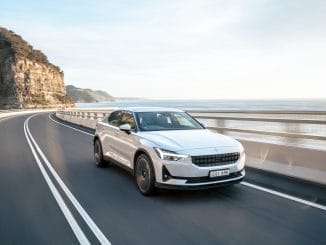 Rainforest Degradation – The EU is pumping billions into promoting electric vehicles (EVs) – 200 million are expected to be on the road by 2028. But EVs are not as green as they are portrayed: their production consumes vast amounts of cobalt, nickel, manganese and rare earths that are mined in the rainforests of Africa, Southeast Asia and South America.
Rainforest Degradation – The EU is pumping billions into promoting electric vehicles (EVs) – 200 million are expected to be on the road by 2028. But EVs are not as green as they are portrayed: their production consumes vast amounts of cobalt, nickel, manganese and rare earths that are mined in the rainforests of Africa, Southeast Asia and South America.
Call to action
To: The EU and the governments of the Member States
Simply replacing internal combustion engines with electric motors is not the answer – we need to create new mobility concepts from the ground up.
While the emissions of conventional cars are terrible for the environment and human health, electric vehicles are anything but clean – their production requires an enormous input of energy and raw materials.
About 1,800 kilograms of metals and other materials are used in a mid-range electric car such as the Chevrolet Bolt, which marketed in Europe as the Vauxhall/Opel Ampera-e. The European automotive industry imports almost 100% of these materials – and a significant share of them come from mines in tropical countries and rainforest areas.
Lithium-ion batteries, the heart of electric vehicles, are no exception here. The Chevrolet Volt battery pack, for example, weighs 440 kg, which is 10,000 times the weight of a smartphone battery (44 gr). Besides lithium, manganese and graphite, they contain about 10 kg of cobalt and 30 kg of nickel.
In the case of nickel mining, Indonesia and the Philippines are at the forefront of global production. Two-thirds of the world’s cobalt comes from the Democratic Republic of Congo. Cobalt, copper and nickel are mined along an 800-kilometer belt in the rainforest in the south of the country – under catastrophic working conditions, at starvation wages, and by tens of thousands of child laborers.
In the case of iron for steelmaking, Brazil is a leading supplier of the automotive industry. The country is also in first place for copper, followed by Peru and Chile.
The mines of international corporations are thus eating into the rainforests to satisfy the resource hunger of the manufacturers of “clean” electric vehicles.
Simply clogging the roads with millions of EVs is not the answer to our present problems. Tell the EU that we need a fundamental rethink of policies related to raw materials and transport to put them on an environmentally friendly foundation.
The Petition
To: The EU and the governments of the Member States
Ladies and Gentlemen,
A wholesale shift to electric vehicles is neither environmentally sound nor climate-neutral. It would require a vast amount of power that currently cannot be generated in an environmentally friendly manner.
The production of electric cars requires enormous amounts of raw materials that are almost exclusively mined in tropical countries and rainforest areas.
Furthermore, the switch to electric mobility will not bring about a decline in road traffic, as the constantly rising number of vehicle registrations and increasing road congestion show.
We call on you to work to reduce the number of cars and car traffic. Ensure that people can reach their destinations quickly and safely on foot, by bike or by public transport.
We call on you to create create effective new mobility concepts that benefit people and nature.
Yours faithfully,
This article first appeared at https://www.rainforest-rescue.org/petitions/1182/electric-vehicles-are-stealth-rainforest-killers#letter




